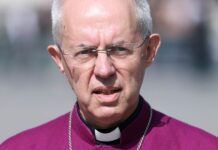The Church of England’s National Investing Bodies (NIBs) are delivering on their 2018 commitment to General Synod to engage with and disinvest from high carbon emitting companies that are not making progress to align with the goals of the Paris Agreement by 2023.
Twenty companies have made climate-related changes to stay off the Church’s restricted list since 2020.
Following extensive engagement efforts by the NIBs, nine companies made changes to meet the 2021 hurdles. As a result they stayed off the restricted list for a further year, while 28 companies that did not meet the latest climate hurdles were restricted.
These actions are part of the NIBs’ commitment to transitioning their portfolios away from companies that are unwilling to act and align their businesses with the Goals of the Paris Agreement. The climate hurdles were set by the NIBs using Transition Pathway Initiative (TPI) data. Additional exacting hurdles will come into force in 2022 and 2023.
The NIBs are founding members of TPI and are investor engagement leads in the Climate Action 100+ (CA100+) global engagement initiative. As long-term investors, the NIBs will continue to engage with companies to meet their climate objectives and build alliances with like-minded investors to engage with company boards and executives.
The NIBs are the Church Commissioners for England, the Church of England Pensions Board and the CBF Church of England Funds, managed by CCLA Investment Management. CCLA does not invest in the oil and gas sector, and with CBF Funds not invested in any of the other restricted companies it remains unaffected by the changes to the restricted list. The Church of England Pensions Board is not invested in any of the companies on the current restricted list as a result of investing a majority of the Pension Board’s funds in line with the FTSE TPI Climate Transition Index. The Church Commissioners actively manages its portfolio, and its fund managers are required to meet its ethical investment exclusions, including those companies restricted because of climate issues.
Companies the NIBs engaged that made changes and remain unrestricted are Adelaide Brighton (Adbri), Ecopetrol, Enbridge, Martin Marietta Materials, Nornickel, Occidental Petroleum, PGE, Severstal and Suzano. American Electric Power (AEP)’s new series of mid- to long-term emissions reduction targets mean that it has become unrestricted, reversing last year’s assessment that the company had not made enough progress.
Three companies are under review: Equinor, Origin Energy and Sasol. In line with our engagement-led approach we will continue to engage robustly with these companies before reviewing their transition plans at the end of 2022, and following further assessment by TPI.
Companies that are restricted are BHP Billiton, BP, Chevron, China Petroleum & Chemical, CNOOC, ConocoPhillips, Dangote Cement, Devon Energy, Eneos, ExxonMobil, Gazprom, Lukoil, Marathon Petroleum, NTPC, OMV, Petrobras, Petrochina, Phillips 66, Power Assets, PTT, Reliance Industries, Rosneft Oil, Santos, SK Innovation, Southern Copper, Teck Resources, Valero Energy and Woodside Petroleum.
ExxonMobil does not meet the hurdles established for 2021 so it will be restricted for the NIBs. Following the success of last year’s activist campaign supported by the Church Commissioners, the Commissioners will delay the implementation of this restriction to continue their engagement with Exxon and support the three new board members elected in June 2021 following that campaign. Remaining invested in Exxon for now will enable the Church Commissioners to keep their seat at the table to continue to push for change. This will give the new Exxon directors time to work with their board colleagues to bring about change and address the urgency of the climate crisis. Should the company fail to demonstrate sufficient progress on its transition strategy, the Church Commissioners would disinvest from Exxon. The Pensions Board and CCLA are supportive of the engagement their colleagues at the Church Commissioners have done with Exxon and the activist approach that led to the replacement of 25% of the company’s board.
Bess Joffe, Head of Responsible Investment, Church Commissioners for England, said:
“Companies that continue to make changes to their emissions and strategy are a testament to the power of engagement. We are of the view that we have more influence on high carbon industries by being in the room. By engaging with these companies we can address the climate crisis and bring about real world change. We will absolutely divest from any companies, including Exxon, by 2023 that are not making significant progress in line with the goals of the Paris Agreement. We hope our continuing engagement with the recently re-vamped Exxon board will have an impact on its strategy, capital expenditure and ultimately on their emissions.“
Adam Matthews, Chief Responsible Investment Officer, Church of England Pensions Board, added:
“Whilst some companies are responding to engagement, others are not transitioning in line with the goals of the Paris Agreement. Simply put: they pose a financial and ethical risk to our ethical investment approach. As a result of aligning our fund to the FTSE TPI Climate Transition Index we are not invested in these companies and have now implemented an ethical restriction to prohibit any future investment. We would encourage serious reflection by the Boards of these companies as to the path they are choosing to pursue and the impact these decisions have on their social license to operate.”
Josephine Carlsson, Church Ethics Lead, CCLA, also commented:
“We support the Church Commissioners in their engagement efforts to instigate positive change at ExxonMobil. At CCLA, while we don’t invest in the oil and gas sector, we prioritise all carbon-intensive businesses for engagement on climate risk and see engagement as an imperative part of the process to hasten a just transition to a net-zero emission economy.”



